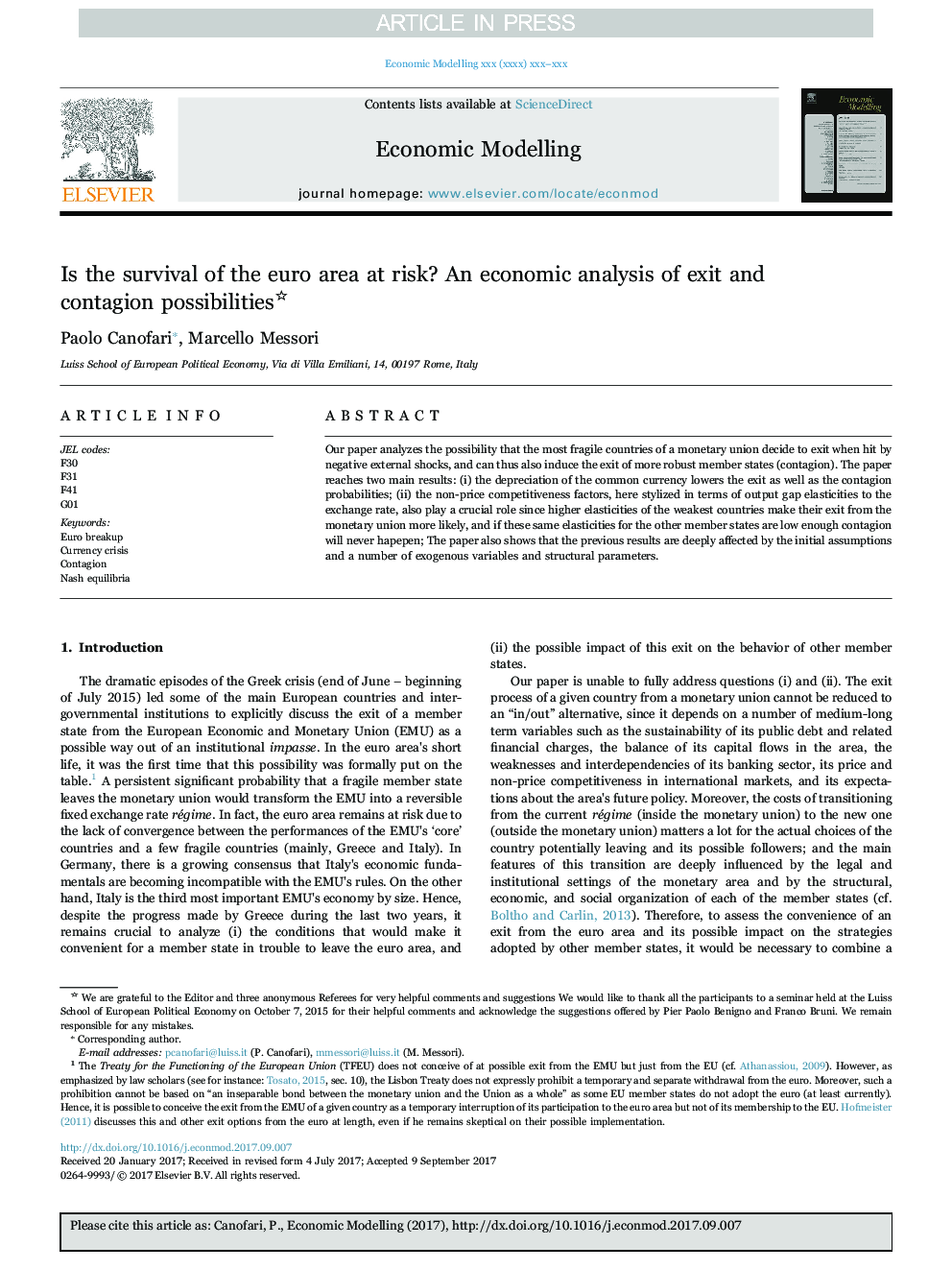| Article ID | Journal | Published Year | Pages | File Type |
|---|---|---|---|---|
| 7347417 | Economic Modelling | 2018 | 9 Pages |
Abstract
Our paper analyzes the possibility that the most fragile countries of a monetary union decide to exit when hit by negative external shocks, and can thus also induce the exit of more robust member states (contagion). The paper reaches two main results: (i) the depreciation of the common currency lowers the exit as well as the contagion probabilities; (ii) the non-price competitiveness factors, here stylized in terms of output gap elasticities to the exchange rate, also play a crucial role since higher elasticities of the weakest countries make their exit from the monetary union more likely, and if these same elasticities for the other member states are low enough contagion will never hapepen; The paper also shows that the previous results are deeply affected by the initial assumptions and a number of exogenous variables and structural parameters.
Related Topics
Social Sciences and Humanities
Economics, Econometrics and Finance
Economics and Econometrics
Authors
Paolo Canofari, Marcello Messori,
